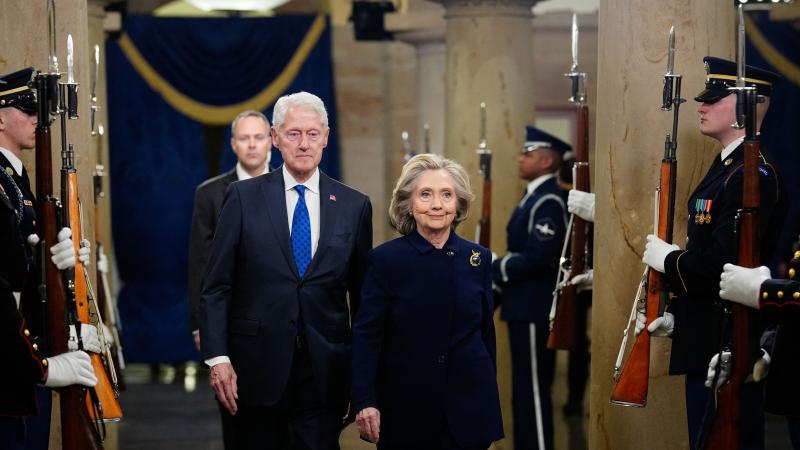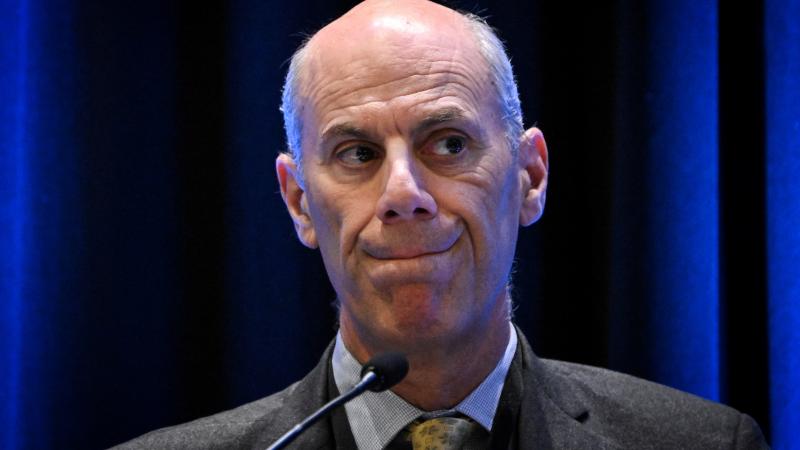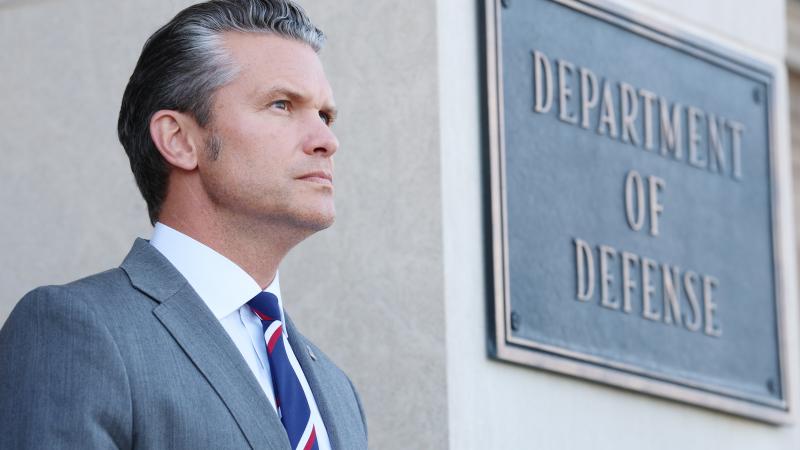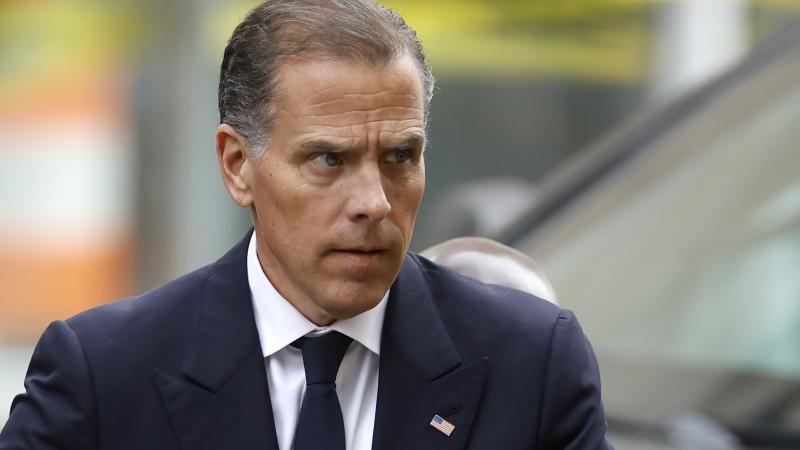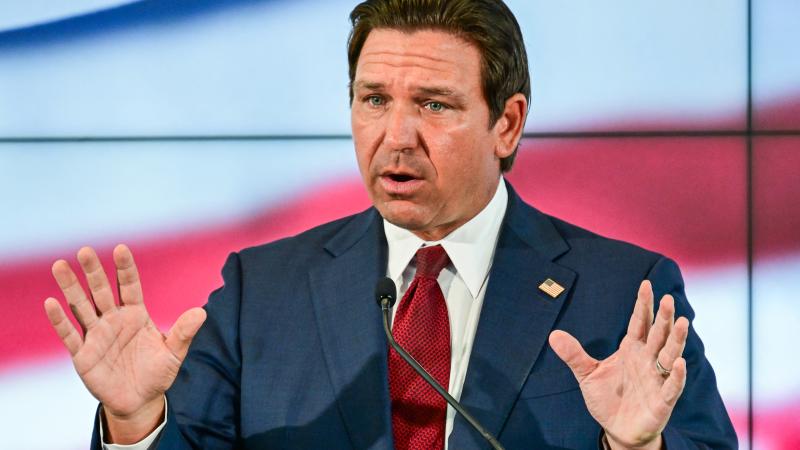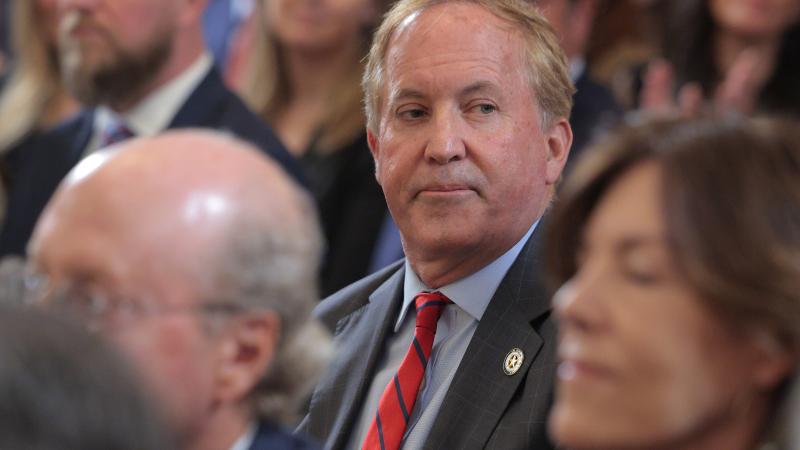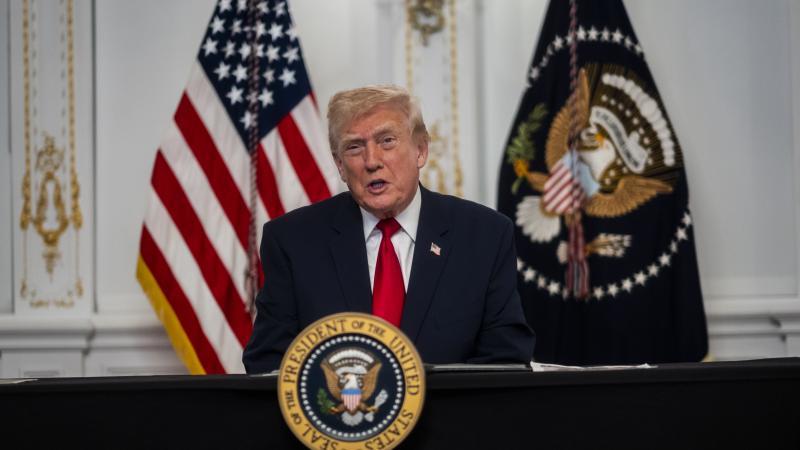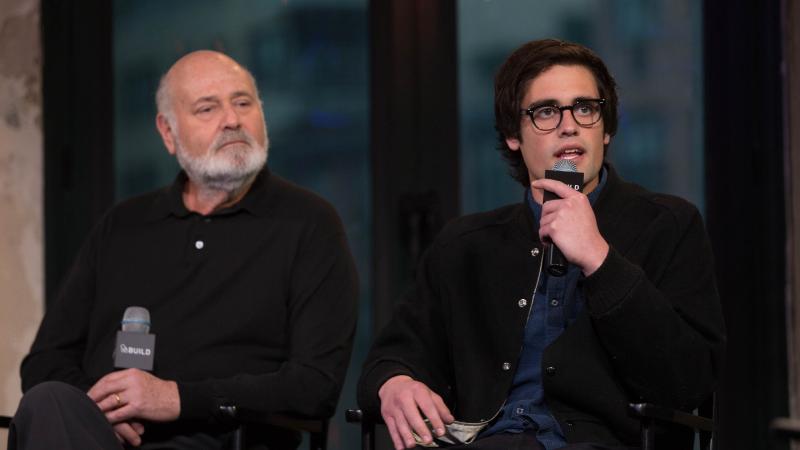How information manipulation could be destroying our health

When the media purposefully controversializes issues, life-saving facts become harder to find.
Full transcript:
Sharyl Attkisson:
Hi everybody, Sharyl Attkisson here. Welcome to another edition of the Sharyl Attkisson Podcast on JustTheNews.com, a digital news site dedicated to facts, not spin. And reporting on under reported stories and views that cut across the grain. I hope you'll subscribe to all our Just The News Podcasts, including John Solomon Reports, and The Pod's Honest Truth. And I hope you'll consider pre-ordering my new book, Slanted: How the News Media Taught Us to Love Censorship and Hate Journalism, available wherever books can be ordered.
Today we're going to look at one of the most important stories I've worked on in the past couple of years, and talk about how it figures into the bigger picture of information manipulation that we're all being subjected to every day. I called it one of the most important stories I've worked on in the past couple of years. What makes it so? Well, it gets at the heart of alleged cover up and corruption within some of our most trusted institutions, the justice department, and our public health officials. It also is a story that impacts public health. You might say, "Well, there are a lot of stories about government corruption, there are a lot of stories about public health." But one thing I think elevates this story that we're going to talk about is that it's about a subject that almost nobody else in the news media will report anymore. And those types of stories are becoming increasingly common, sadly enough. In today's managed information landscape.
So before I tell you the story, let me explain that at the start, about 15 years ago, this story topic was covered by every reputable media outlet, it was not considered the least bit controversial to report on it. But once certain powerful interests got a strangle hold on the media, the quasi-media, social media, public health offices, federal agencies, Congress, the same topic was irrationally controversialized so that no reporter or scientist dared touch it without risk of being smeared, slandered, defunded, or ruined.
Well, to sum it up, under an unusual arrangement when there are alleged injuries from vaccinations given to children or anybody, the federal government defends the vaccine companies in a special vaccine court. In other words, the alleged victims have to fight the justice department. Now around 2007, one of the government's big expert witnesses, someone who testified that vaccines can't cause autism, was a pro-vaccine scientist named Dr. Andrew Zimmerman. A work renowned Johns Hopkins pediatric neurologist with a great reputation. But the twist is that as medical science and knowledge about vaccines and autism advanced, Dr. Zimmerman, the government expert, the pro-vaccine scientist, reversed his opinion and came to understand, he said, that vaccines can and do cause autism in rare cases. And the mechanism by which it does this, well, there are actually several that scientists talk about, became fairly well know. He says he made sure to tell the justice department officials that he worked for as an expert witness about this important new information. But that when he did, they promptly fired him as an expert witness. That they hid his opinion and continued to misrepresent his opinion in court.
Well, this was only known many years later, about a year and a half ago, actually, when Dr. Zimmerman signed a sworn affidavit telling the story and naming names. So now take a listen to the report that I did for my Sunday television program, Full Measure, about this topic.
Today we investigate one of the biggest medical controversies of our time, vaccines. There's little dispute about this much, vaccines save many lives and rarely they injure or kill. A special federal vaccine court has paid our billions for injuries from brain damage to death. But not for the form of brain injury we call autism.
Now we have remarkable new information. A respected pro-vaccine medical expert used by the federal government to debunk the vaccine autism link says vaccines can cause autism after all. He claims he told that to government officials long ago, but they kept it secret.
Yates Hazelhurst was born February 11th, 2000. Everything was normal according to his medical records, until he suffered a severe reaction to vaccinations. Roth Hazelhurst is Yates's dad.
Roth Hazelhurst:
At first I didn't believe, I did not think that ... I did not believe that vaccines could cause autism, I didn't believe it.
Sharyl Attkisson:
This is today's hard reality for Yates. The trademark brain disease, pain, and inability to communicate that's common with severe autism.
In 2007, Yates's father sued over his son's injuries in the little known Federal Vaccine Court. It was one of more than 5,000 vaccine autism claims. Congress created Vaccine Court in 1988 in consultation with the pharmaceutical industry. In this special court, vaccine makers don't defend their products, the federal government does it for them. Using lawyers from the justice department. Money for victims comes from us, not the pharmaceutical industry, through patient fees added onto every vaccine given.
Speaker 3:
Our hearings are all closed to the public. That's statutory.
Sharyl Attkisson:
In 2007, Yates's case and nearly all the other vaccine autism claims lost. The decision was based largely on the expert opinion of this man, Dr. Andrew Zimmerman, a world renowned pediatric neurologist, shown here at a lecture.
Dr. Zimmerman was the government's top expert witness, and had testified that vaccines didn't cause autism. The debate was declared over.
But now, Dr. Zimmerman has provided remarkable new information. He claims that during the Vaccine Court hearings all those years ago, he privately told government lawyers that vaccines can and did cause autism in some children. That turnabout from the government's own chief medical expert stood to change everything about the vaccine autism debate. If the public were to find out.
Roth Hazelhurst:
And he has come forward and explained how he told the United States government that vaccines can cause autism in a certain subset of children. And the United States government, the Department of Justice, suppressed his true opinions.
Sharyl Attkisson:
Hazelhurst discovered that later when Dr. Zimmerman evaluated Yates as a teenager. That's when he partnered with vaccine safety advocate, Robert F. Kennedy Jr., who has a voice condition.
Robert F. Kennedy Jr:
This was one of the most consequential frauds, arguably in human history.
Sharyl Attkisson:
Kennedy was instrumental in convincing Dr. Zimmerman to document his remarkable claim of the government covering up his true expert opinion on vaccines and autism. Dr. Zimmerman declined our interview request and referred to his sworn affidavit. It says on June 15th, 2007 he took aside the Department of Justice, or DOJ lawyers he worked for defending vaccines in vaccine court. He told them that he'd discovered exceptions in which vaccinations could cause autism.
"I explained that in a subset of children, vaccine induced fever and immune stimulation did cause regressive brain disease with features of autism spectrum disorder."
Roth Hazelhurst:
This panicked the two DOJ attorneys. And they immediately fired Zimmerman, they told ... they called, that was on a Friday and over the weekend they called Zimmerman and said his services would no longer be needed. They wanted to silence him.
Sharyl Attkisson:
Days after the Department of Justice lawyers fired Dr. Zimmerman as their expert witness, he alleges they went on to misrepresent his opinion to continue to debunk autism claims. Records show that on June 18th, 2007 a DOJ attorney Dr. Zimmerman spoke to told Vaccine Court, "We know Dr. Zimmerman's views on the issue, there is no scientific basis for a connection between vaccines and autism." Dr. Zimmerman now calls that highly misleading.
The former DOJ lawyer didn't return our calls and emails. Kennedy has filed a fraud complaint with the Justice Department Inspector General, who told us they don't comment on investigations or potential investigations.
Meantime, CDC, which promotes vaccines and monitors vaccine safety, never disclosed that the government's own one time medical expert concluded vaccines can cause autism. And to this day, public health officials deny that's the case.
Speaker 3:
Based on dozens of studies and everything I know as a physician and a scientist, there's no link between autism and vaccines.
Sharyl Attkisson:
CDC declined our interview request.
In addition to filing a fraud complaint, Kennedy has delivered Dr. Zimmerman's affidavit to leaders on Capitol Hill. But there he claims is another key part of this story. Roadblocks set up by the pharmaceutical industry, or pharma.
Robert F. Kennedy Jr:
Everybody takes money from pharma, they've all been corrupted. And it's almost impossible to get anything done on Capitol Hill.
Sharyl Attkisson:
Kennedy, a Democrat, isn't the only one claiming vaccine industry money rules the day. We spoke to 11 current and former members of Congress and staff who claim they faced pressure, bullying, or threats when they raised vaccine safety questions. Several of them agreed to appear on camera.
Dan Burton:
There's no question in my mind whatsoever that the pharmaceutical industry had a great influence with people over at the CDC and FDA. There's no question in my mind.
Sharyl Attkisson:
Republic Dan Burton, former chairman of the House Oversight Committee, has an autistic grandson.
Dan Burton:
I am not against vaccinations.
Sharyl Attkisson:
He pursued vaccine investigations in the early 2000s. Beth Clay was one of his staffers.
Beth Clay:
There was a lot of pressure from people on the Hill.
Sharyl Attkisson:
When you say people on the Hill were exerting pressure, what kind of people, colleagues, or ... ?
Beth Clay:
Colleagues, they were pharmaceutical lobbyists. The pharmaceutical lobbyists had ... they're the same people that have been entrenched, they can walk into any office in Capitol Hill and they'll talk to staff, they'll talk to members, and they'll encourage them to discourage our investigation.
Sharyl Attkisson:
At the risk of stating the obvious, why did they have that kind of access to members?
Beth Clay:
It's money. And if you look at the donations over the last 20 years, the pharmaceutical industry, and Republic and Democrat, they're nonpartisan, they put money everywhere.
Sharyl Attkisson:
Former Congressman Dr. Dave Weldon, a Republican, says he got the message loud and clear.
If you would want to hold a hearing on an issue like vaccines and autism, your own leadership might fight you on that because of the financial influence the pharmaceutical industry has?
Dr. Dave Weldon:
No, they wouldn't fight you, they would kill it. It's dead. They don't even want to discuss it. It's dead on arrival. If you as an individual member want to take on the pharmaceutical industries, it's ... forget it.
Sharyl Attkisson:
Can you describe an incident, or just how that would go?
Dr. Dave Weldon:
It would typically be in a hallway, or on the street, and people would come up to you and say, "You really need to back off on this, it could be ... it could be bad for the community, or bad for the country, or bad for you."
Sharyl Attkisson:
Weldon says he's generally pro-vaccine, depending on the patient and the shot, and gives flu shots to adults. We asked him to review Dr. Zimmerman's new affidavit.
Dr. Dave Weldon:
I found his affidavit and testimony through that affidavit to be consistent with my opinions. Some children can get an autism spectrum disorder from a vaccine.
Sharyl Attkisson:
Republic Bill Posey is a current member of Congress.
Bill Posey:
I don't have to tell you that that industry is a very, very powerful industry. Matter of fact, I don't know of anyone more powerful than that industry.
Sharyl Attkisson:
Posey says his own party leaders twice promised to hold hearings on the topic, only to scuttle them in the end.
Hazelhurst, who happens to be a criminal prosecutor, was scheduled to be a witness at one such Congressional hearing. Two weeks before the hearing in 2013, he briefed Congressional staff.
Roth Hazelhurst:
I presented at that Congressional briefing, and I explained in that hearing, if I did to a criminal in a court of law what the United States Department of Justice did to vaccine injured children, I would be disbarred, and I would be facing criminal charges. I think that scared the hell out of them.
Sharyl Attkisson:
The hearing was abruptly canceled. Meantime, Dr. Zimmerman, the one time expert used to debunk vaccine autism claims, now says several of his own patients got autism from vaccines.
Roth Hazelhurst:
[inaudible 00:13:45]
Sharyl Attkisson:
They include Yates Hazelhurst.
Roth Hazelhurst:
Just go.
Sharyl Attkisson:
Today, with intensive treatment, Yates is doing better. His dad hopes the new testimony from a most unlikely source will get new attention.
Roth Hazelhurst:
A child that was unnecessarily sacrificed, and hopefully good will come from his suffering.
Sharyl Attkisson:
So again, that was a report that I did at the beginning of 2017. You can read more about this yourself if it interests you. You can go to SharylAttkisson.com and search Zimmerman, and you'll be able to see Dr. Zimmerman's biography, his published articles. You can read his sworn affidavit. You can find links to the video version of the story.
By the way, Dr. Zimmerman is not anti-vaccine any more than I or others who report factually on vaccine safety or medical issues are. But the industry propagandists and their assistants in the media, the quasi-media, they've made this a way of their life to monitor, find, and go after people reporting these facts, or scientist researching them. Logically it's silly, really, it's like claiming that because I reported on Firestone tire problems that I'm anti-tire. Or that because I reported on fraud at certain nonprofits and charities that I'm anti-charity. That's ridiculous. But somehow this propaganda seems to ring true to some when they hear it. And of course it is inserted on the Wikipedia biographies of reporters, researchers, scientists who dare to simply report on this issue in a way that is off the infamous narrative.
So that leads me to my next point. There is nothing in the news report you just heard that qualifies as fake news or false. You can certainly choose to believe that Dr. Zimmerman is wrong, or that he's not telling the truth, but it's not fake or a lie that he filed a sworn affidavit, that he served as an expert witness for the Justice Department, that he concluded vaccines can cause autism after all, that he says the science supports that conclusion. It's not fake or a lie that he remains staunchly pro-vaccine, but believes that there are some safety issues that can and should be addressed about vaccination. It's not fake or a lie that he claims there was a coverup by our own health officials and Justice Department when he provided them with this information.
But when this story has been shared, the story I did, on Facebook, Facebook has improperly flagged the story as false. Again, there is nothing that remotely qualifies as false. You can choose to agree with expert opinions or interpretations or you can not like somebody, or you can even think somebody may be lying. But the story itself, recounting this information, is not false or fake.
Well, we recently talked about the case of a coronavirus documentary that was also incorrectly flagged by Facebook in a fake fact check. The fact check actually traced to a US scientist who works at the Chinese lab in question, in other words, information being censored on Facebook by Facebook is being done with the help of someone working with the Chinese. But that's not being disclosed when they make their fake fact check.
In the bigger picture then, we are back to theme of how powerful forces are increasingly able to control what we see on the news, what we see on social media, on Twitter, on Facebook, what we read when we visit websites and blogs. They can make sure that you don't see or hear or believe information that they don't want you to see or hear or believe. We'll have more in just a moment.
We're back. There are dozens of scientists and researchers that I can think of pretty quickly who I know were considered absolutely reputable, peer reviewed and published, until they had the misfortune of their work finding results that powerful interests didn't want them to have. Results that powerful interests didn't want you to hear about, or other doctors to read. Then these same researchers are controversialized and smeared, they're fired from their institutions, they're defunded, they can't get federal grants, federal agencies make sure they don't have money to survive professionally.
Then consider what the former editor of the New England Journal of Medicine, Dr. Marcia Angell told me for a report I did also in 2017. Dr. Angell said, "Most peer reviewed published medical studies today are not to be believed because the special interests are controlling them, too. Often it's the pharmaceutical industry, but there are other interests at play as well." This is the former head of the New England Journal of Medicine and she says it's true, and was true even then about her own publication.
Here's a report that I did in 2017 with Dr. Angell and I called it Fake Science. Take a listen.
Our cover story this week may lead you to question much of what you hear and read about scientific and medical studies. It's a cautionary note issued by respected industry leaders who say unseen interests are exerting enormous control over research, and what is or isn't published. They're startling claim that a large percentage of articles in prestigious medical journals are simply not to be believed. We begin with Dr. Marcia Angell of Harvard, a pioneer in the medical journal field.
Dr. Marcia Angell:
I think physicians and the public have come to believe that drugs are much better and much safer than they really are.
Sharyl Attkisson:
What makes Dr. Marcia Angell's skepticism so remarkable is where she places much of the blame. On researchers and medical journals. That includes the prestigious New England Journal of Medicine, where she worked for 20 years, and was its first female editor-in-chief from 1999 to 2000.
Most people probably think an article is in a journal, probably written at a university based on independent study and that's that.
Dr. Marcia Angell:
It used to be that way. As you described it, pretty simple. And it began to change as the pharmaceutical industry became richer, more powerful, more influential. And began to take over the sponsorship of probably most clinical research.
Sharyl Attkisson:
But before we get to that, we begin with a more obvious example of questionable science. The chocolate diet. It was publicized by a slick marketing campaign and even a song. The study was a hoax by a journalist to show how easy it is to get shoddy research published.
Dr. Howard Pomeranz:
I already knew that there were fake journals who would publish this stuff. But would journalists pick it up and turn it into a big story? And the sad answer is, yes, very big.
Sharyl Attkisson:
A chocolate diet is one thing, but more and more prestigious journals are getting caught inadvertently publishing false studies.
What's your view of how much we can trust the articles that appear in these prestigious medical journals?
Dr. Howard Pomeranz:
One always has to be aware of the possibility that somebody who is an author or co-author, or someone who is consulted to help support the research was a paid consultant by the pharmaceutical industry, and that's not always apparent.
Sharyl Attkisson:
Dr. Howard Pomeranz is a neuro-ophthalmologist at the Hofstra/Northwell School of Medicine. He's authored dozens of journal articles and says many studies are written by academic researchers fraught with conflicts of interest.
In some cases it sounds like it's nothing more than advertising by an employee that works for a drug company.
Dr. Howard Pomeranz:
It is, and I think that's often the way you have to look at it.
Dr. Marcia Angell:
I came to the New England Journal of Medicine in 1979. Starting about then was when you saw the drug companies assert more and more control. Until finally they, over the next couple of decades, they began to treat the researchers as hired hands. They would design the research themselves. You can do a lot of mischief in how you design a trial. Or, "We'll test this drug and we'll tell you whether it can be published or not." And so if it's a positive study, it's published, if it's a negative study, you never see the light of day.
Sharyl Attkisson:
That happened in 2000. The makers of an experimental AIDS vaccine threatened to sue Dr. James Kahn, their lead researcher at the University of California San Francisco, for seven million dollars to keep him from publishing study results showing the vaccine didn't work.
Dr. Marcia Angell:
An official of the company said something to the effect of, "We've put 30 million dollars into that study, we have our rights," or something like that.
Sharyl Attkisson:
Angell says that he applied due diligence to the many studies submitted to the New England Journal of Medicine. It started to feel like a losing battle.
Dr. Marcia Angell:
I would call up and say, "Okay, you've shown that your drug is pretty good. But there's not a single side effect." Any drug that does anything is going to have side effects. And I had people say, "Well, the sponsor won't let me." And so I became to be extremely distrustful of most of the research that was published. We did our very best, we often rejected things because it was clearly biased. But anything we rejected always ended up in another journal.
Sharyl Attkisson:
Angell left the New England Journal of Medicine in 2000, but kept her eye on the journal industry, which she says resisted meaningful efforts to rein in conflicts of interest.
In 2009, she wrote an article that famously declared, "It is simply no longer possible to believe much of the clinical research that is published."
What would you say is the state of the journal landscape today, and the New England Journal of Medicine particularly?
Dr. Marcia Angell:
I think that that role, that the New England Journal used to fill, one was the role of being skeptical, the other was the role of caring about the ethics of the whole system. I think the Journal has given that up, the New England Journal of Medicine has given that up.
Sharyl Attkisson:
The New England Journal of Medicine declined our interview request, but told us, "Since 1984 we have requested author disclosures." In 2009, the Journal says it helped pioneer a universal form requesting that authors report all relevant financial conflicts during the most recent three years. And it posts the form in study sponsorship.
Besides Dr. Angell, another powerful voice is also weighing in. The current editor-in-chief of the British journal, Lancet, Dr. Richard Horton, wrote a scathing editorial saying, "Much of the scientific literature, perhaps half, may simply be untrue. Science has taken a turn towards darkness."
Annie Waldman:
Be skeptical about everything. Skeptical about every study that you read, whether it's in the New England Journal of Medicine or some journal you've never heard of.
Sharyl Attkisson:
Annie Waldman writes for the nonprofit, ProPublica.
Annie Waldman:
In academia there are a lot of expectations. Some of it is the influence of wanting to get a promotion, wanting to get tenure, wanting to get another job somewhere else. If you get a result which is not what you want, do you still go ahead and publish it? Perhaps you have millions of dollars of funding behind it.
Sharyl Attkisson:
Besides misleading doctors and the public, fake science and provable fraud can cost taxpayers millions. Dr. Eric Pullman got 2.9 million dollars in federal grants, and published hundreds of medical articles on obesity and menopause before he got caught fabricating data while at the University of Vermont School of Medicine. In 2005, he became the first academic researcher sentenced to prison for fraudulent studies.
From 1992 to 2012, taxpayers shelled out 58 million dollars to scientists whose papers were later retracted due to misconduct.
What do you see as potential risk or peril of doctors reading these journal articles that may be fraught with conflicts of interest, or may be inaccurate?
Dr. Howard Pomeranz:
It ends up that a lot of us end up getting bought by the pharmaceutical industry. Interestingly, we rely a lot on the pharmaceutical industry to tell us about what's good about their drug and to convince us to use it. And we're not as critically inquisitive as we should be about whether a drug is truly helpful, what are the side effects, what are the downsides of using the medications.
Sharyl Attkisson:
Today, Angell is at Harvard Medical Schools. She says experience has taught her to question nearly all the studies she reads in medical journals, or hears about on the news.
Dr. Marcia Angell:
Anything you're going to put in your body, I think, there should be more than one study showing roughly the same results. Ideally coming at it from different directions. What you want to see is something that's not going to get the front pages of the newspaper, that's going to be way in the back. That says yet again, this drug has been shown to be helpful. That's the one you should take. Not the one that gets the headlines.
Sharyl Attkisson:
Some journals are responding to the criticism. The prestigious British Medical Journal recently started requiring researchers to share data and allow its dissenters to comment on its articles. For its part, the New England Journal of Medicine says, "Experts put hundreds of hours of work in on each published paper to ensure they meet exacting standards."
You can see the video version of that report by searching online for fake science and my name, or fake science and Full Measure. Also, all of these stories, I call them cover stories on my Full Measure program, can be found in one place if you go to SharylAttkisson.com and look for the tab that says Full Measure, click on it, and you'll see that you can click on cover stories. All of the cover stories are listed there, it's a great idea for binge watching. If you've missed seeing news that's nonpartisan and off the narrative, you can find it here. All in one place.
Well, the coronavirus crisis is helping create what I feel is an atmosphere of critical mass. When it comes to those trying to control our information, not just our medical information and the things we've talked about, but all of it. People know it's happening, they don't like it. They see how important it is, it's impacting things they care about. And that's a good thing that people recognize it. The question is, what are you going to do about it?
I hope you enjoyed today's podcast. Check out JustTheNews.com and don't forget to subscribe to the Sharyl Attkisson Podcast, my other podcast, Full Measure After Hours, and all of the Just The News podcasts wherever you like to listen. If you like the topics that I talk about on my podcast, I promise you will love my new book, Slanted: How the News Media Taught Us to Love Censorship and Hate Journalism. You can support independent journalism by pre-ordering that anywhere. Do your own research, make up your own mind, think for yourself.


